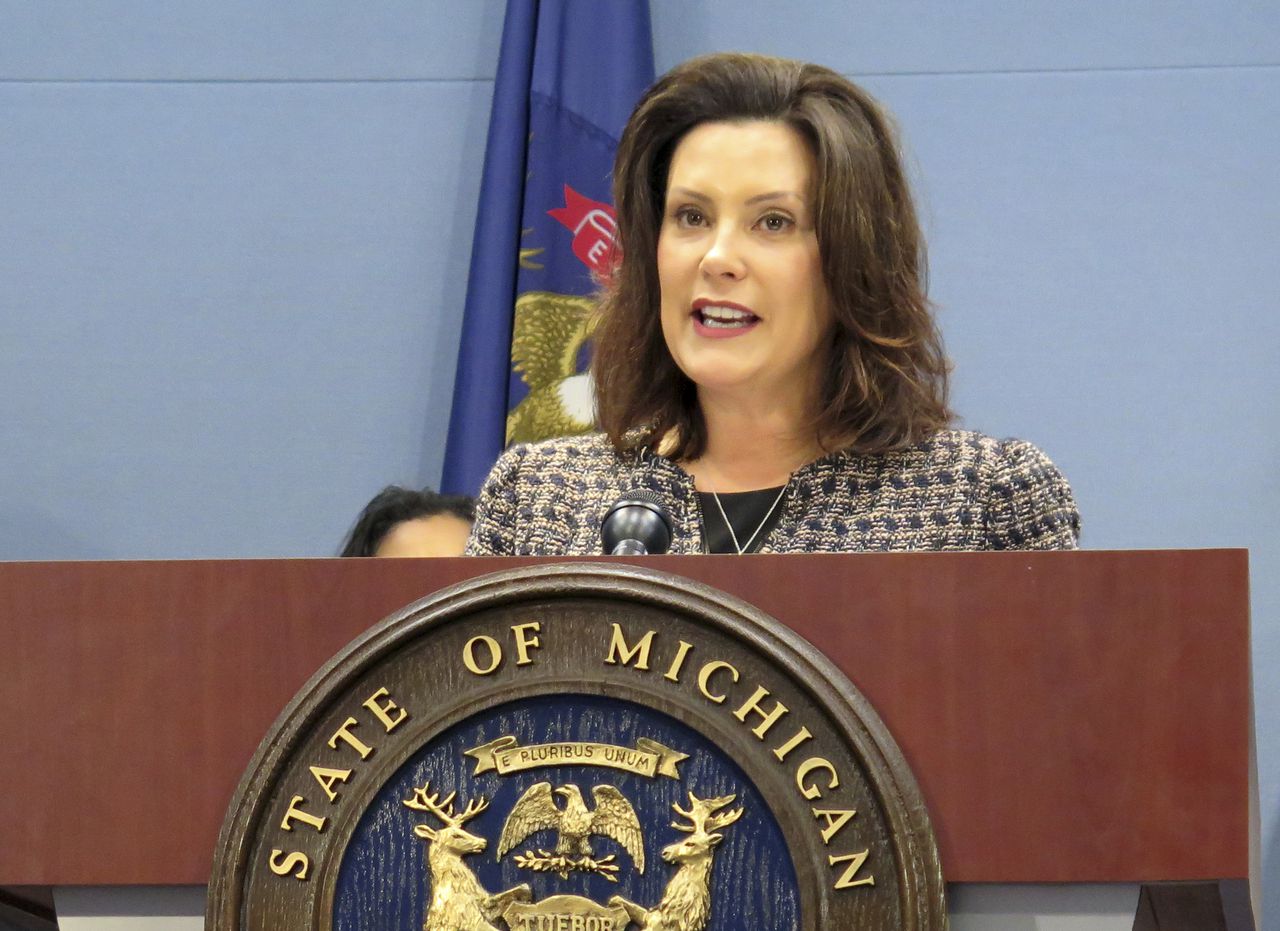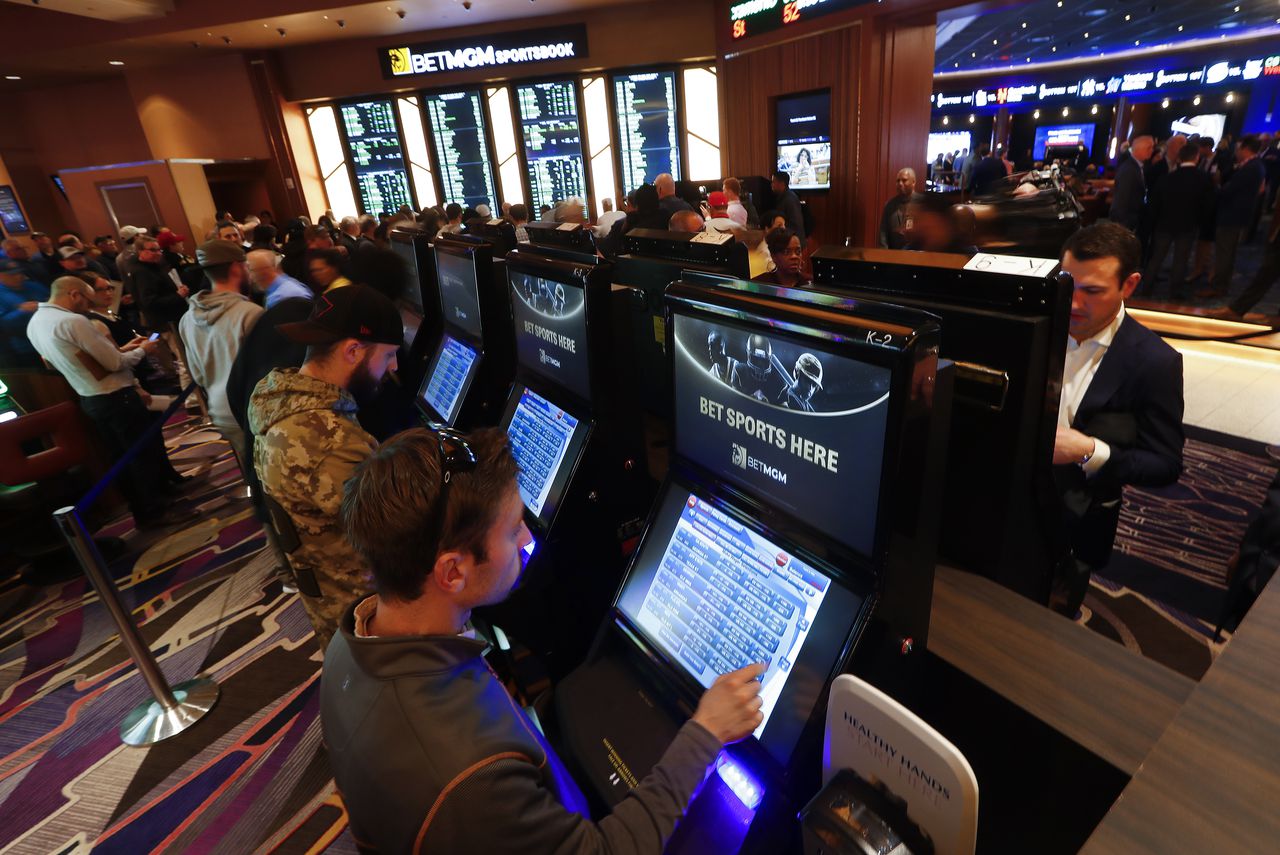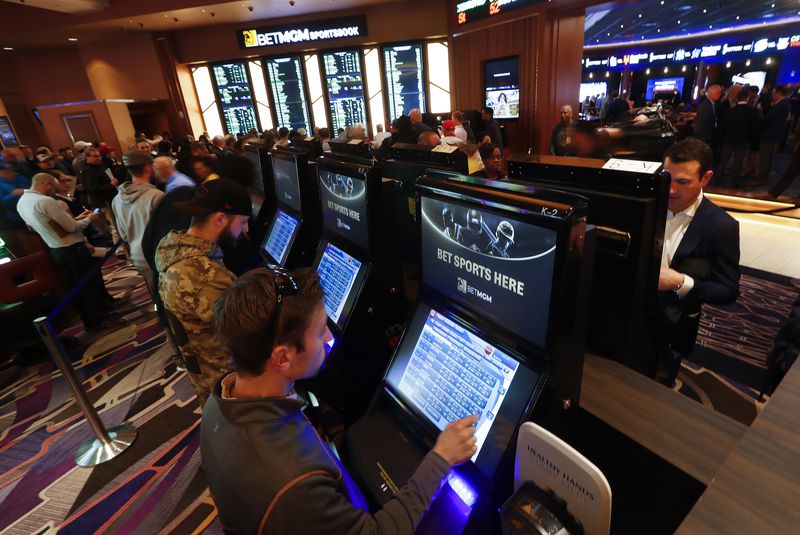In Michigan’s bustling gambling scene, regulations function as the unseen hands shaping the industry’s landscape, keeping its citizens safe, and ensuring everything runs above board. The regulations governing casinos in Michigan are standard but can be tricky to decipher.
This guide hopes to help you understand Michigan’s gambling regulations, what they are, and why they exist. We also explore the practical implications for brands and players and how Michigan’s regulations with legal casino betting differ from those in other states.
We won’t have time to discuss every specific rule, regulation, and act related to gambling in Michigan, so if you want to learn the specifics, refer to the Michigan Gaming Control Board (MGCB) website.
History of legal gambling in Michigan
Before getting into the specific regulations, we must review the history of casinos and sportsbooks in the Great Lake State.
The first legal gambling allowed in Michigan came about after passing the Racing Act of 1933, which granted citizens the right to bet on pari-mutuel horse racing. When the act passed, 1933 also became the first time that Michigan needed to regulate gambling, so they created the Office of Racing Commissioner (ORC). The ORC still exists but functions off a new set of racing laws passed in 1995.
The ORC is considered an independent agency created inside the Department of Agriculture. Its current role is to promote safety, security, and integrity in the oft-criticized sport.
According to their website, Michigan lists the state Lottery as the step towards full-scale casino legalization. In 1972, Michigan voters approved an amendment to the state constitution, enabling the creation of a state lottery.
Later in 1972, Act 382 was passed, which allowed nonprofit organizations to raise funds via licensed gambling. The limited games included bingo, raffles, and charity game ticket sales. The act was revised in 2007, and a list of Charitable Gaming Rules was added and is now enforced.
It wasn’t until 1993 that the Saginaw Chippewa Indian Tribe broke ground on the first tribal casino in Mt. Pleasant. Michigan signed an agreement with the tribe, eventually ten more between 1993 and 1998. However, these tribes are considered sovereign nations and are not subject to any regulations from the State of Michigan or the Michigan Gaming Control Board (MGCB).
Michigan passed the Gaming Control and Revenue Act in 1997, which allowed three licensed brick-and-mortar casinos to open in Detroit. The MGM Grand Detroit and MotorCity Casino opened in 1999, followed by the Greektown Casino Hotel in 2000.
In March 2020, the first retail sportsbooks launched in Michigan, one at each of the land-based casinos in Detroit.
Finally, in 2021, the MGCB saw its workload expand drastically when online and mobile sportsbooks, casinos, and poker rooms were legalized. With the expansion, Michigan exploded with platforms seemingly overnight. Refer to our list of best Michigan casinos for more information about the best providers in the state.

Michigan Gov. Gretchen Whitmer speaks about new lead testing rules on Wednesday, June 26, 2019, at the Romney Building in Lansing, Mich. State officials expect the regulations to result in more communities exceeding limits.(AP Photo/David Eggert)
The Significance of Michigan Gambling Regulations
Michigan’s gambling regulations impact more than just the gaming industry. Here are some key reasons why these regulations matter and why.
Economic Impact
Michigan’s gambling industry is a substantial contributor to the state’s economy. The revenue generated from casinos, lotteries, and other gambling activities directly benefits various sectors, such as education, public services, and tourism. State regulations determine the extent to which these economic benefits are realized and are paramount in ensuring the funds are distributed most effectively.
Consumer Protection
Regulations play a critical role in ensuring that gambling activities are fair, transparent, and safe for consumers. They establish rules and standards that protect gamblers from potential exploitation and ensure the integrity of the games.
Because of how important consumer protection is to gambling regulations, we strongly advise against playing at any site or location that isn’t entirely compliant. The best-case scenario with an unlicensed casino is that you lose a few bucks before realizing something is amiss. It’s just not worth it.
Tax Revenue
Michigan relies on tax revenue from gambling activities to fund essential public services. Regulations dictate the tax rates, revenue distribution, and how funds are allocated to various state programs.
In 2022, Michigan reported that gambling taxes generated around $2 billion in revenue for the state and the programs these funds are earmarked for. Regulators say the 2022 numbers represent a 41% tax increase compared to 2021.
Industry Growth
The gambling industry in Michigan is highly competitive and constantly evolving. Regulations shape the industry’s structure, the number of operators, and the types of casino games offered. They also influence market dynamics and business growth opportunities.
Social Implications
Gambling regulations also address the industry’s potential social impact. They may include measures to combat problem gambling, promote responsible gaming, and provide resources for individuals who need help with gambling-related issues.

FILE – In this March 11, 2020, file photo, patrons place in person bets during the launch of legalized sports betting in Michigan at the MGM Grand Detroit casino in Detroit. Michigan casinos could launch online sports betting and gambling games in December once state lawmakers waive the remaining time they have to review proposed licensing rules. The Joint Committee on Administrative Rules, which has 10 legislators, will effectively bless the new regulations at a meeting Tuesday, Dec. 1, 2020, said the chairman, Republican Sen. Pete Lucido.(AP Photo/Paul Sancya File)
Key players in Michigan’s gambling regulations
Several entities and groups play crucial roles in creating and enforcing Michigan’s gambling regulations. These stakeholders include:
Michigan Gaming Control Board (MGCB)
The MGCB is the primary regulatory authority responsible for overseeing and enforcing gambling regulations in the state. The board issues licenses, conducts audits, and ensures compliance with state laws.
Tribal Governments
Native American tribes operate a significant number of casinos in Michigan. These tribal governments have a direct stake in the regulations that govern their casinos. They often negotiate compacts with the state to determine the terms under which they can operate.
Commercial Casino Operators
The operators of Detroit’s commercial casinos are essential stakeholders. They are subject to state regulations and must adhere to the rules set forth by the MGCB.
Online Gambling and Sports Betting Operators
Various online operators have entered the Michigan market by legalizing online gambling and sports betting. These entities must obtain licenses and comply with the state’s regulations.
Sportsbooks:
Online Casinos:
Lawmakers and Policymakers
Elected officials, including the Governor and the state legislature, have a significant role in shaping gambling regulations. They pass laws, approve compacts with tribal governments, and set the tax rates for gambling activities.
Advocacy Groups
Advocacy groups focused on responsible gambling and addressing gambling addiction also influence regulations. They advocate for measures to protect consumers from running into problems.
Current challenges and future considerations
Michigan’s evolving gambling landscape presents both opportunities and challenges for regulators and casinos. As the state continues to adapt to changes in the industry, several considerations must be addressed:
Problem Gambling
The expansion of gambling can lead to an increase in problem gambling. Regulations should include provisions for responsible gaming and support services for individuals with gambling-related issues.
Gamblers Anonymous: There is hope
Mayo Clinic: Compulsive Gambling – Symptoms and Causes
National Council on Problem Gambling
Regulatory Adaptation
The regulatory framework needs to keep pace with technological advancements and emerging trends in the gambling industry, such as virtual reality casinos and blockchain-based betting platforms.
Taxation and Revenue Allocation
Policymakers must continually review and adjust tax rates and the allocation of gambling revenue to protect the state’s financial interests. With the growth rate exceeding 40% from 2021 to 2022, Michigan has no reason to slow down.
Tribal-State Compacts
Renegotiating compacts between tribal governments and the state may become contentious, with potential disputes over revenue sharing and exclusivity rights. The Tribal casinos have become such an essential part of the gambling landscape in Michigan that it would be in the state’s best interest to continue working with these entities, not against them.
Competition and Market Saturation
As more operators enter the market, competition intensifies. Therefore, ensuring a level playing field for all market participants is crucial. We’ve already seen a little of this regarding online casinos, with the majority being high-quality but less-reputable options finding their way into the market. It can be hard to know which is which sometimes, so be careful and research.
Final thoughts
Michigan’s gambling regulations are vital to the state’s economic, social, and legal landscape. They influence the growth and integrity of the gambling industry, protect consumers, and provide critical revenue for public services. With the recent expansion of online gambling and sports betting, these regulations play an even more significant role in shaping the state’s future.
Michigan’s gambling regulations are a dynamic and evolving field, and their importance will continue to be a subject of great significance.
Sidelines Group provides MLive with original sports betting, lottery and casino content, including odds, analysis, predictions and reviews to educate bettors. Please bet responsibly.
If you have a gambling problem and are located in Michigan, call 1-800-GAMBLER or 1-800-270-7117 or you can visit the Michigan Gaming Control Board’s website at https://www.michigan.gov/mgcb.
